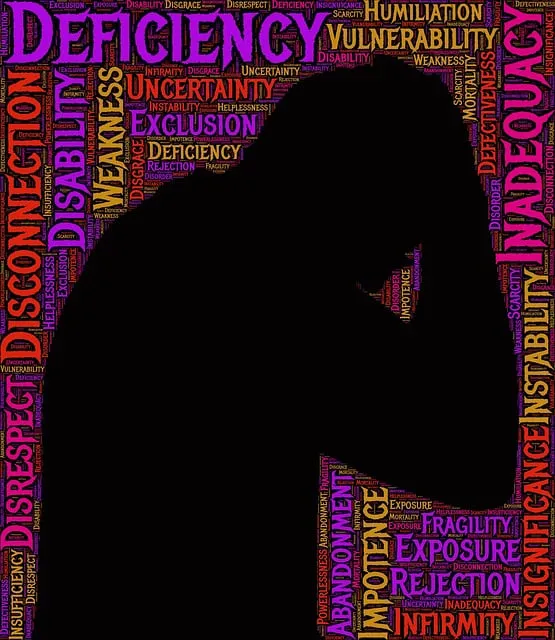In a world where anxiety and stress are prevalent, Kaiser Permanente behavioral health services in Castle Rock are leading the way with innovative self-assessment tools for mental wellness. These tools empower individuals to understand their emotional states, promote self-awareness, and encourage early intervention. By integrating primary care with specialized services, Kaiser Permanente Castle Rock offers holistic mental health support, reducing stigma and improving patient outcomes. Their self-assessment approach, backed by scientific validity and cultural sensitivity, enables users to take charge of their mental well-being, fostering resilience and better coping mechanisms through personalized stress reduction techniques.
Mental wellness self-assessment tools play a crucial role in modern healthcare, particularly within integrated care models. This article explores the development of such tools, with a focus on a case study of Kaiser Permanente’s behavioral health services in Castle Rock. We’ll delve into the design principles behind effective assessments and discuss their implementation’s impact on patient care and outcomes. By understanding the need for these tools, we can enhance the overall mental wellness landscape.
- Understanding the Need for Self-Assessment Tools in Behavioral Health
- Kaiser Permanente Castle Rock: A Case Study on Integrated Care
- Designing Effective Mental Wellness Self-Assessment Tools
- Implementation and Impact: Enhancing Patient Care and Outcomes
Understanding the Need for Self-Assessment Tools in Behavioral Health

In today’s fast-paced world, mental wellness is as crucial as physical health, especially with rising concerns about anxiety and stress among individuals from all walks of life. Recognizing this growing need, organizations like Kaiser Permanente behavioral health services in Castle Rock are leading initiatives to develop effective self-assessment tools. These tools serve as a gateway for individuals to gain profound insights into their emotional well-being, helping them identify areas where they may require support or intervention.
Self-assessment plays a pivotal role in promoting mental wellness by empowering individuals to take ownership of their inner world. Tools designed by Kaiser Permanente behavioral health services aim to facilitate a deeper understanding of one’s thoughts, feelings, and behaviors, thereby fostering self-awareness. By encouraging regular self-evaluation, these tools can provide early indicators of potential issues, enabling people to seek help before they escalate. Furthermore, they contribute to the development of anxiety relief, confidence boosting, and inner strength by offering a comprehensive framework for personal growth and resilience.
Kaiser Permanente Castle Rock: A Case Study on Integrated Care

Kaiser Permanente Castle Rock serves as a compelling case study showcasing integrated care approaches to mental wellness. This healthcare organization has implemented comprehensive programs that seamlessly blend primary care with specialized Kaiser Permanente behavioral health services Castle Rock. By adopting this integrated model, they aim to holistically address patients’ physical and psychological needs. For instance, individuals seeking support for resilience building or trauma support services benefit from a coordinated system where their general healthcare providers work in conjunction with mental health specialists.
This collaborative approach not only improves access to care but also fosters more effective self-care routine development for better mental health. Patients experience reduced stigma and increased comfort discussing sensitive mental health topics with integrated teams. The Castle Rock model emphasizes the importance of early intervention and continuous support, contributing to improved patient outcomes and overall community well-being.
Designing Effective Mental Wellness Self-Assessment Tools

Designing effective mental wellness self-assessment tools is a multifaceted process that involves understanding both the individual’s current state and their potential for growth. At organizations like Kaiser Permanente behavioral health services in Castle Rock, experts emphasize the importance of creating assessments that are not only scientifically valid but also user-friendly and culturally sensitive. This ensures that individuals from diverse backgrounds can accurately assess their mental wellness without barriers.
The development process should incorporate evidence-based Self-Awareness Exercises to help users gain insights into their thoughts, feelings, and behaviors. Additionally, integrating Stress Reduction Methods and Emotional Healing Processes can provide valuable context for understanding an individual’s mental wellness profile. By combining these elements, self-assessment tools can empower individuals to take charge of their emotional well-being, fostering a sense of agency and resilience.
Implementation and Impact: Enhancing Patient Care and Outcomes

The implementation of mental wellness self-assessment tools, such as those developed by Kaiser Permanente behavioral health services in Castle Rock, significantly enhances patient care and outcomes. These tools empower individuals to proactively assess their mental health status, identify potential issues early on, and seek appropriate interventions promptly. By integrating these assessments into routine healthcare practices, medical professionals can foster better communication and build empathy with patients, leading to improved Mental Health Awareness.
Moreover, the use of such self-assessment tools encourages patients to adopt Stress Reduction Methods and Empathy Building Strategies that are tailored to their unique needs. This proactive approach not only improves overall mental wellness but also strengthens patient-provider relationships, fostering an environment where individuals feel more comfortable discussing sensitive topics related to their emotional well-being. As a result, patients are better equipped to navigate life’s challenges, leading to enhanced resilience and improved quality of life.
The development of mental wellness self-assessment tools is a pivotal step in enhancing patient care within behavioral health services, as demonstrated by Kaiser Permanente’s innovative approach at their Castle Rock facility. By integrating these tools into routine practice, healthcare providers can offer more personalized and effective treatment plans. This article has highlighted the growing necessity for such assessments, their successful implementation strategies, and the positive impact on patient outcomes. With continued refinement, these tools have the potential to revolutionize how we navigate and support mental wellness in a diverse range of care settings.






